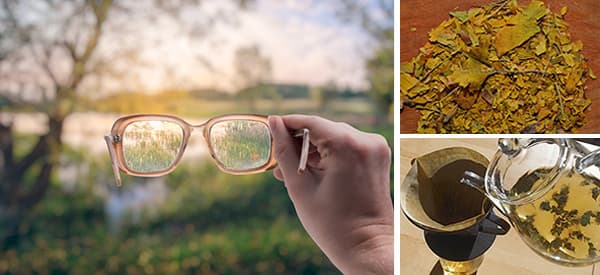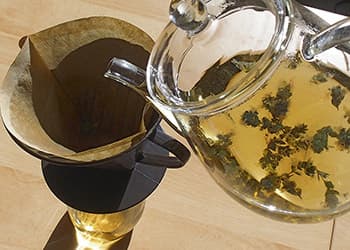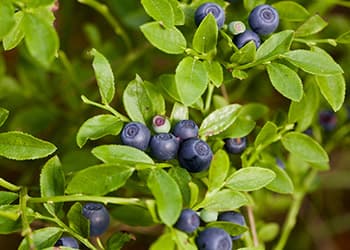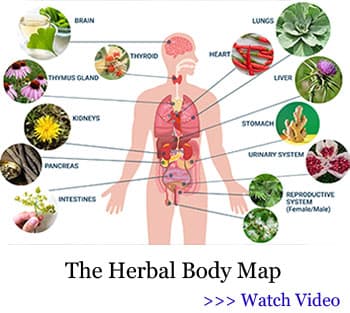
Improve Your Eyesight with These 3 Common Herbs
From checking smartphones to reading computer screens and binging on streaming platforms, our eyes are under a lot of strain every day. Since it’s also normal for our eyesight to deteriorate as we grow older, taking care of our eyes and preserving our vision should always be a priority.
Although wearing protective eyewear and eating foods like salmon, sweet potatoes, and dark, leafy greens can keep your eyes healthy, consuming certain herbs will also support clear vision. This article highlights three common herbs that can improve your eyesight and keep it strong in today’s tech-driven world.
Eyebright (Euphrasia Officinalis)
Eyebright is a small, scallop-edged white flower with a black center and yellow spots, somewhat resembling a bloodshot eye. The eyebright plant grows wild in meadows, grassy areas, heaths, and pastures in the UK, Europe, North America, and northern and western Asia. It is a member of the Scrophulariaceae plant family, which includes foxgloves.
As the name suggests, eyebright has traditionally been used to treat eye conditions like inflammation, blepharitis, conjunctivitis, red eye, styes, itchy eyes, stinging eyes, and weak vision. For example:
During the Middle Ages, health practitioners mixed dried eyebright with tobacco and told patients to smoke it to treat bronchial colds.
The poet Milton mentions eyebright in Paradise Lost, in which the archangel Michael cures Adam’s eye infection with eyebright.
Herbalist Thomas Culpeper wrote that the juice or distilled water of eyebright, taken internally in white wine or broth, or dropped into the eyes for several days at a time, “cures all infirmities of the eyes causing dimness.”
In Elizabethan times, the herb was used to make a drink called eyebright ale which was used to strengthen poor eyesight.
Eyebright can be applied topically or consumed. You can use it as:
Lotion: Apply eyebright lotion to rejuvenate tired eyes and reduce signs of fatigue.
Eye Drops: There are eye drops available containing eyebright extracts: follow manufacturer directions.
Tea: Mix one to two teaspoons of eyebright powder in a cup of boiling water and steep for five to 10 minutes. Strain and serve, adding sweetener if you find the taste too bitter.
Eye Wash: Put one teaspoon of eyebright into boiling water, strain, and let cool. After the tea has cooled down, you can use it daily as an eyewash.
One study found that a dosage of one drop of eyebright eye drops three times a day yielded positive results in 85% of the conjunctivitis patients who participated in the trial.
Bilberry (Vaccinium myrtillus)
Bilberry is a perennial shrub that can grow as tall as 16 inches. A native of Northern Europe, it is recognizable by its green, sharp-edged branches and wrinkled blackberries, which are usually harvested in late summer. A relative of blueberries, cranberries, and huckleberries, bilberries taste and look like American blueberries.
Since ancient times, bilberries have been used as medicine and as food in jams and pies. They contain antioxidant substances known as anthocyanosides, which scavenge free radicals to help prevent or reverse cell damage. These antioxidants can prevent long-term eye illnesses, such as macular degeneration, glaucoma, and cataracts. It has been reported that Royal Air Force pilots consumed bilberry jam during World War II to improve their night vision.
In 2016, researchers conducted a 12-week study to see if bilberry extract could improve eye fatigue in those working in front of computers. Most subjects saw their symptoms improve, so the clinicians concluded that anthocyanins migrated from the blood to the ciliary muscle in the eye, suppressing and relieving muscle tension, thereby potentially reducing ocular fatigue.
Bilberries can be found fresh, frozen, dried, powdered, or in packaged foods like jam. Aside from eating them fresh, you can use them in smoothies, sauces, and preserves. To make tea from the berries themselves, boil one to two teaspoons in a cup of boiling water. If you are using the leaves, steep one to two tablespoons in boiling water. Strain and enjoy.
Gingko (Ginkgo biloba)
Native to China, the Ginkgo tree is often called a living fossil since it is the only surviving member of Ginkgoales, a plant order that first appeared over 290 million years ago. Its leaves and seeds are often used in traditional Chinese medicine, but modern research focuses mainly on the benefits of ginkgo extract, most of which relate to brain function and blood circulation.
Its beneficial impact on circulation has led researchers to conclude that ginkgo improves blood flow to the retina, which is the light-sensitive tissue at the back of the eye. According to preliminary research, extracts may improve vision in glaucoma patients. It is also an antioxidant and protects nerve cells, including those in your eyes, which is why people living with macular degeneration and diabetic retinopathy have reported positive results.
A variety of Ginkgo products are available, including capsules, tablets, liquid extracts, and dried leaves, the latter of which can be used to make tea. (Add one ounce of dried ginkgo leaf to two cups of boiling water.) In studies, adults have used 120 to 240 milligrams divided over the course of the day. Generally, improvements are noticeable after four to six weeks.
⇒ Identifying the Ginkgo Biloba Tree: Does It Grow on Your Street? (Video)
The Bottom Line
In addition to using these three herbs, you can take the following steps to ensure good vision health:
- Don’t forget to blink! When we concentrate on a digital screen, we blink significantly less, which robs our eyes of necessary moisture.
- Whenever you’re using a device with a screen, take a 20-second break every 20 minutes to look at something 20 feet away.
- Take a break from your screens.
- Wear blue light-blocking eyewear during extended sessions in front of the computer.
- Make sure your eyewear prescriptions are up-to-date by visiting your optometrist regularly.
- When you’re outdoors, wear sunglasses to protect your eyes.
To maintain good vision health, you need to protect your eyes from oxidative damage and inflammation. The three herbs covered in this article, along with proper nutrition and good lifestyle choices, can make it possible for you to enjoy healthy eyesight through all stages of life.
How to Detoxify Your Vision (Video)
10 Herbal Remedies to Delay Aging





My eyesight has improved exponentially since I STOPPED wearing sunglasses. I keep a pair in the car only if it’s absolutely necessary, but I honestly can’t remember the last time I wore them. My eyes are much less sensitive.
Barbara, I don’t wear sunglasses either unless there is glare from the sun when I am driving, I learned this from Meir Schneider who founded the School For Self Healing in San Francisco. He was declared legally blind as a small child. When he was a teenager, he found someone to teach him eye exercises developed by a well known eye specialist, and he regained his eyesight and drives a car! He teaches people how to improve their eyesight, including the important fact that our eyes need the sunlight 🙂
Same 👍
I was diagnosed with wet Psoriasis about 9 months ago. I go for shots in my eye once a month. I wear sunglasses to protect my eyes. I try to eat green leafy vegetables and take vitamins but i would like something a bit easier and I believe in herbs. I’m interested in what herbs to use.
Hello DEBBIE
I’ve have it also and I find cutting out sugar and bread greatly improves my condition. It basically goes away but will come back, when I cheat and eat bread. As far as herbs, spices goes, anything that is anti-viral works great. Some examples would be ginger, tumeric and garlic powder. The garlic powder works great at curing IBS. IBS leads to dry skin which leads to infection most times from shared family members towels for example. Sunlight is also great. If you look up at the little magnifier at the top of this page you will see the search option, type in psoriasis and you will get a wealth of information. One last thing, try to eat real foods not canned or processed as there are some nasty chemicals designed to increase shelf life and profits and are actually poisonous to bacteria and also us.
Bonus if you don’t eat sugar you wont get cavities, also cardamon kills the bugs that make cavities.
Best wishes and good luck from the MYG Cosmetic team!
I have been suffering with dry eye or possibly ocular rosacea for about 2 years now. I do suffer with rosacea on my face, so I’m not sure if that has moved to my eyes as well. About 9 months ago, the doctor recommended Restasis drops for my eyes, twice daily, and it is not helping at all. Wondering if Eyebright or any other herbal remedies might help. I am so desperate for help and wondering if you have any suggestions? Thank you, Christine